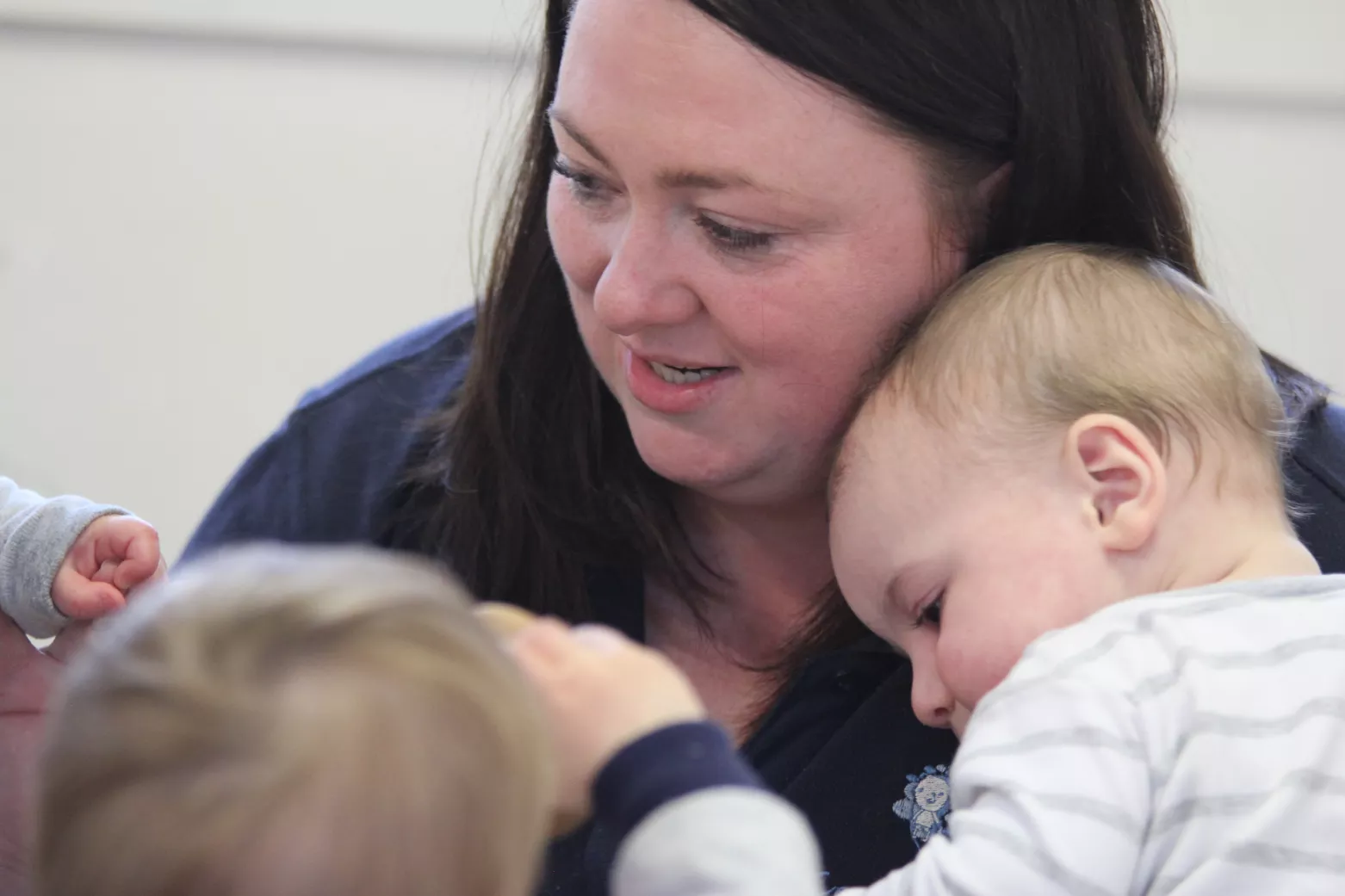Responsive, respectful relationships
- Home
- Latest news
- We hear you
- Responsive, respectful relationships
National Children's Week begins this Saturday (October 18-26) and celebrations are happening across the country. To mark this event, National Education Leader Rhonda Livingstone, explores the topic of responsive and respectful relationships with children.

With Children’s Week comes the opportunity to celebrate and acknowledge children’s rights. Provision of quality education and care promotes children’s rights in the critical years of their development and leads to positive outcomes. These principles are woven throughout the National Quality Framework.
During the development of the National Quality Standard, much research was undertaken to identify the key drivers for quality in education and care. The Organisation for Economic Co-operation and Development (OECD) Report Starting Strong II: Early Childhood Education And Care[1] identified that attention needs to be given to both ‘structural’ and ‘process’ quality to ensure quality outcomes for children attending services.
Generally, structural quality refers to the foundation for optimal conditions including physical environment, health and safety, educator-to-child ratios and qualifications. These are most often found in Quality Area 2: Health and Safety, Quality Area 3: Physical Environment and Quality Area 4: Staffing Arrangements in the National Quality Standard, and are often easier to measure than the process elements.
Process quality relates to the experiences children have and include social interactions and involvement in the program or quantifiable inputs to quality. These are most often found in Quality Area 1: Educational Program and Practice and Quality Area 5: Relationships with Children.
Quality Areas 6: Collaborative Partnerships with Families and Communities and 7: Leadership and Service Management include aspects of both process and structural quality.
Research shows that process quality had a “direct impact on child outcomes, whereas structural indicators of quality had an indirect impact through process quality”[2].
What this means, for example, is that while higher educator qualifications are found to be strongly associated with better child outcomes, it is not the qualification as such that has an impact on child outcomes[3]. It is the ability of the educators to use the skills gained through qualifications to create high quality environments, stimulate interactions with and between children, scaffold children’s learning and build trusting, respectful relationships with children and families.
What is it about respectful and responsive relationships with children that are so important for meeting child outcomes including their learning, development and well-being? The Early Years Learning Framework and Framework for School Age Care identify secure, respectful and reciprocal relationships with children as one of the key principles underpinning practice. Respectful relationships are a cornerstone to supporting children’s learning and development, and play a significant role in a child’s sense of belonging and how they interact with the world around them. The Guide to the National Quality Standard (p. 119) reminds us that supportive relationships with educators and staff members allow children to:
- develop confidence in their ability to express themselves
- work through differences
- learn new things and take calculated risks.
Educators can build nurturing relationships that support children to feel valued as competent and capable individuals by:
- actively engaging in their learning
- sharing decision-making with them
- using their everyday interactions during play, routines and ongoing projects to stimulate their thinking and to enrich their learning
- providing opportunities for children to express their thoughts and feelings
- supporting children as they begin to empathise with others, to appreciate their connectedness and interdependence as learners and to value collaboration and teamwork.
Relationships are built over time. Anne Stonehouse identifies the importance of consistent staffing arrangements in establishing positive relationships as well as giving regard to settling in and transition times. She provides a range of practices that promote relationships, including:
- showing warmth and being welcoming: demonstrating to children that you are happy to see them, sharing a laugh with them
- respecting each child’s uniqueness and communicating that respect to the child
- actively looking for each child’s strengths and sharing your appreciation of those with the child, the child’s family and colleagues
- showing children that you know them well, for example by helping them to identify their feelings and offering needed help and support to deal with feelings
- creating and taking full advantage of one-on-one times, even brief ones, with each child
- trying hard to understand children’s communication – verbal and non-verbal – and responding respectfully and authentically to encourage children to ask questions and share their thoughts
- keeping promises
- looking behind their behaviour to try to figure out what it means.[4]
Positive and responsive one-on-one interactions and relationships are essential for children in promoting their current wellbeing, their future development, ability to thrive, and provide a secure base for exploration. These relationships support children to feel connected and become confident communicators and learners.
Resources
- Early Years Learning Framework
- Educators’ Guide to the Early Years Learning Framework
- Educators’ Guide to the Framework for School Age Care
- Framework for School Age Care
- Guide to the National Quality Standard, pp. 118–138
- Social and emotional learning. ECA PLP E-Learning Videos. Talking About Practice. https://www.youtube.com/watch?v=jQyktkEM6t4
- Recognising and supporting babies’ and toddlers’ belonging, being and becoming. ECA PLP E-Learning Videos. Talking About Practice. https://www.youtube.com/watch?v=Jy75GDT4Vwo
- Relationships with children, NQS PLP e-Newsletter No.36. https://www.education.vic.gov.au/Documents/childhood/professionals/support/Ratiotipsheet5.pdf
- Respectful Relationships PSC Alliance. Children's Services Central. Semann and Slattery, Self-Assessment Tool Professional Learning Plan – PSCA
References
[1] OECD (2006) Starting Strong II: Early Childhood Education and Care
[2] NICHD Early Child Care Research Network (2002) cited in Ishimine, K.,Tayler, C. and Bennett J, Quality and Early Childhood Education and Care: A Policy Initiative for the 21st Century, International Journal of Child Care and Education Policy Copyright 2010 by Korea Institute of Child Care and Education 2010, Vol. 4, No.2, 67-80
[3] OECD (2012) Starting Strong III: A Quality Toolbox For Early Childhood Education and Care
[4] Stonehouse, A (2012) NQS PLP e-Newsletter No.36: Relationships with children
Leave a comment